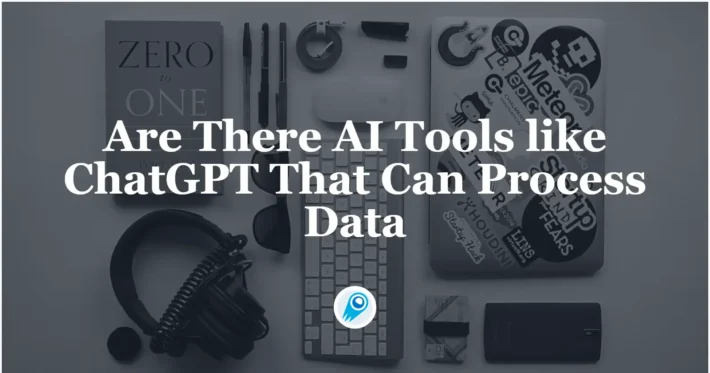How do I Add a PDF to ChatGPT?

In recent weeks, OpenAI has further clarified and expanded its file‐upload capabilities in ChatGPT, making it easier than ever to work with rich document formats—including PDFs—directly within the chat interface. Whether you’re a researcher needing to extract key quotes, a student summarizing articles, or a professional auditing lengthy reports, understanding how to upload and interact with PDF files in ChatGPT can streamline your workflow and unlock powerful AI assistance.
What is the file upload feature in ChatGPT?
ChatGPT’s file upload capability enables users to attach documents—such as PDFs, Word files, spreadsheets, and images—directly into a chat or project, allowing the model to ingest and process that content. This feature transforms ChatGPT from a purely conversational AI into a more versatile assistant capable of analyzing, summarizing, and interacting with user-provided documents. Initially introduced in early 2025 as part of the Deep Research and Projects toolsets, file upload has since become a cornerstone of ChatGPT’s functionality for Plus, Pro, Team, and Enterprise subscribers.
How did file upload evolve in ChatGPT?
- Early file support via Deep Research (February 2025): The Deep Research agent, built on OpenAI’s o3-mini model, first demonstrated PDF and document analysis in February 2025, showcasing the model’s ability to autonomously browse and interpret uploaded files for in-depth research tasks.
- Project-integrated uploads (June 2025): In June 2025, OpenAI expanded file upload support into the Projects feature, allowing users to drag and drop PDFs, spreadsheets, and images into project workspaces on both web and mobile platforms .
- Broader connector ecosystem (June 2025): Also in June, OpenAI introduced chat search connectors for Plus and Pro users, integrating third‑party storage services (Dropbox, Box, Google Drive, OneDrive, SharePoint) so users can link and analyze documents stored externally without manual download and re‑upload .
Who can upload PDFs to ChatGPT?
Not all ChatGPT users have the same access level for file uploads; the capability is gated by subscription tier, geographic region, and feature availability.
Which subscription tiers support PDF uploads natively?
- ChatGPT Plus & Pro: Subscribers to ChatGPT Plus (USD 20/month) and Pro can directly upload PDFs and other documents into Projects and Deep Research sessions.
- Team & Enterprise: Team and Enterprise plan users enjoy the same upload privileges as Plus/Pro alongside administrative controls for connector access and security governance.
Are free-tier users excluded?
Yes. Free-tier users currently cannot upload files directly into ChatGPT’s interface. They must rely on external tools or third‑party plugins (e.g., ChatPDF, PDF-Reader plugins) that bridge document content into the chat context indirectly.
Do regional restrictions apply?
Some advanced features, notably chat search connectors (e.g., Google Drive integration), are limited to users outside the European Economic Area (EEA), Switzerland, and the United Kingdom due to data-privacy regulations .
How can I upload a PDF to ChatGPT?
The process for uploading a PDF depends on your chosen workflow—whether you’re using web, mobile, or connector-based integrations.
Via Projects on web and desktop
- Navigate to Projects: Open the ChatGPT web interface and select an existing project or create a new one.
- Drag and drop the file: Click on the “Files” section in your project sidebar and either drag your PDF or use the “Upload” button to select it from your computer.
- Ask questions: Once uploaded, you can prompt ChatGPT to “Summarize this document,” “Extract all tables,” or “Highlight key findings” .
Via mobile app
- Update the app: Ensure you are running the latest ChatGPT iOS or Android app (June 2025 version or later).
- Open a project or chat: Tap into a project or start a new chat.
- Use the attachment icon: Tap the paperclip or “+” icon and select the PDF from your device’s file manager.
- Voice mode queries: With voice mode enabled, you can even ask questions aloud about the PDF’s content .
Through cloud storage connectors
- Enable connectors: In Settings → Beta features, turn on the chat search connectors for Dropbox, Box, Google Drive, OneDrive, or SharePoint.
- Authenticate your account: Follow the OAuth flow to grant ChatGPT access to your chosen storage service.
- Fetch files on demand: Simply mention “Open my Q2 report from Google Drive” in chat, and ChatGPT will retrieve, parse, and interact with the PDF content directly.
How do developers upload PDFs to the OpenAI API?
Developers can supply PDF documents to the OpenAI API via two primary mechanisms:
File Upload Endpoint
Using the /v1/files endpoint, applications can upload PDFs as Base64‑encoded data or multipart form files. Once uploaded, the API returns a file_id, which can be referenced in subsequent chat or response calls by specifying it in the files parameter. This method closely mirrors the workflow for managing training data and embeddings on OpenAI’s platform .
Content URL Parameter
As of July 2025, OpenAI added the ability to ingest PDF content directly from a publicly accessible URL without needing to upload the file itself. By passing a content_url field to the file creation endpoint, the API downloads and processes the PDF server‑side, returning a file_id for further use. This innovation eliminates redundant storage of large PDF assets and streamlines serverless or edge‑based application architectures .
See Also How to Process PDFs via URL with the OpenAI API
Are There Alternative Methods for Uploading PDFs?
Besides the native ChatGPT interface, various third‑party tools and plugins can enhance or extend PDF‑upload capabilities.
ChatGPT File Uploader Extensions
- Chrome Extensions (e.g., ChatGPT File Uploader) split large PDFs into manageable chunks and inject them into chat.openai.com automatically .
- Browser add‑ons: Offer customizable chunk sizes, prompt templates, and support for more file formats.
Dedicated PDF‑to‑ChatGPT Services
PDF‑integrated plugins: Within enterprise or workspace environments, some platforms integrate directly with ChatGPT APIs to provide a seamless document‑analysis workflow.
chatpdf.com: A standalone web app that uses the ChatGPT API to process PDFs, allowing up to 120 pages per upload for free users and more with a subscription. It auto‑generates summaries and suggested questions.
What limitations should I be aware of when uploading PDFs?
While ChatGPT’s file upload feature is powerful, users must navigate practical constraints around file size, quantity, and content complexity.
File size and quantity limits
- Per-file size cap: Individual uploads are currently limited to 25 MB per file, with larger files requiring segmentation or external preprocessing.
- Project file limits: Projects can hold up to 40 files for Pro, Team, and Enterprise users (up from 20 in June 2025). Once the cap is reached, additional uploads will stall until existing files are removed.
Content and formatting considerations
- Complex layouts: PDFs with intricate layouts—multi‑column text, nested tables, or embedded multimedia—may not parse perfectly, leading to extraction errors or misaligned summaries.
- Scanned documents: OCR quality can vary; scanned PDFs may require preprocessing with dedicated OCR tools to ensure accurate text recognition prior to upload.
Governance and privacy
- Data retention: Uploaded files become part of your project history; organizations should audit and purge sensitive documents when no longer needed.
- Regional compliance: Connector-based access may be restricted or subject to additional privacy safeguards in certain jurisdictions (EEA/UK/Switzerland).
What are best practices for uploading PDFs to ChatGPT?
To maximize the utility of PDF uploads, consider the following strategies:
Preprocess large or complex documents
- Segment large PDFs: Break documents larger than 25 MB into logical chapters or sections to avoid upload limits.
- Optimize scanned pages: Run scanned pages through a dedicated OCR tool (e.g., Adobe Acrobat, Tesseract) to improve text accuracy.
Leverage structured prompts
- Define clear tasks: Instead of “Read this PDF,” ask “Summarize the key findings in Section 3 regarding market growth.”
- Iterative questioning: Use follow‑up prompts to delve deeper, such as “Extract all numerical data points from this table.”
Maintain data hygiene
- Regular cleanup: Remove outdated or redundant files from Projects to stay within file count caps.
- Access controls: Restrict connector permissions only to necessary services and enforce organizational policies for sensitive documents.
Getting Started
CometAPI provides a unified REST interface that aggregates hundreds of AI models—under a consistent endpoint, with built-in API-key management, usage quotas, and billing dashboards. Instead of juggling multiple vendor URLs and credentials.
While waiting, Developers can access O4-Mini API ,O3 API and GPT-4.1 API through CometAPI, the latest models listed are as of the article’s publication date. To begin, explore the model’s capabilities in the Playground and consult the API guide for detailed instructions. Before accessing, please make sure you have logged in to CometAPI and obtained the API key. CometAPI offer a price far lower than the official price to help you integrate.
CometAPI now supports direct calls to the OpenAI API to process PDFs without uploading files by providing the URL of the PDF file.For details on how to call it, see: API doc
In summary, uploading a PDF to ChatGPT is not only possible but continually improving. Whether you’re a Plus subscriber seeking quick summaries, a Pro user integrating Google Drive connectors, or an Enterprise customer leveraging Deep Research for autonomous analysis, ChatGPT’s file upload features empower you to transform static documents into dynamic, AI‑driven insights. As the platform evolves, users can expect deeper multimodal understanding, collaborative tools, and specialized APIs to further streamline how we interact with PDFs in the age of AI.
FAQs
Can I upload multiple PDFs at once?
While ChatGPT’s native interface generally allows one file per upload action, you can sequentially attach multiple PDFs in a single chat. Some browser extensions let you batch‑upload and chunk multiple files automatically.
Does ChatGPT support scanned or image‑based PDFs?
Not directly. Scanned PDFs often require OCR conversion first (using tools like Adobe Acrobat or online OCR services) to extract text. Once converted, you can upload the resulting text‑based PDF.
How does ChatGPT handle encrypted or password‑protected PDFs?
You must first decrypt or remove the password from the PDF using a PDF‐editing tool. ChatGPT cannot open password‑protected files on its own.



